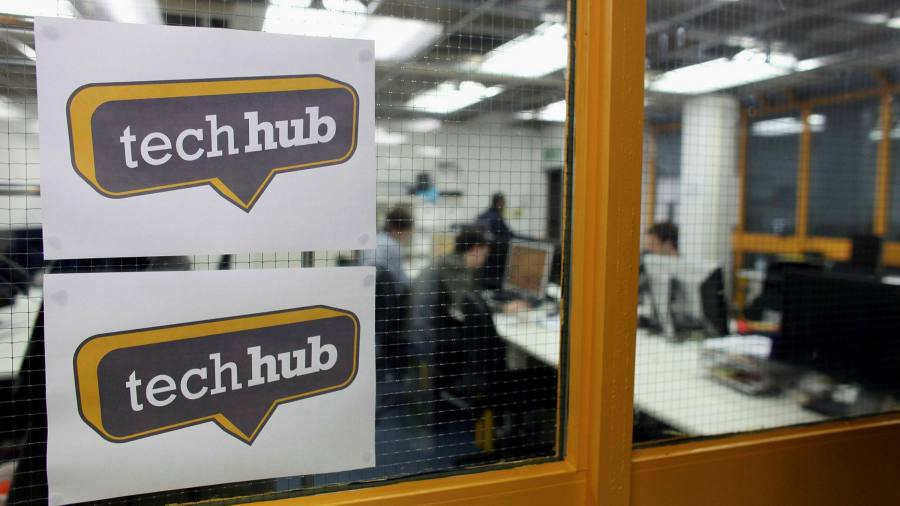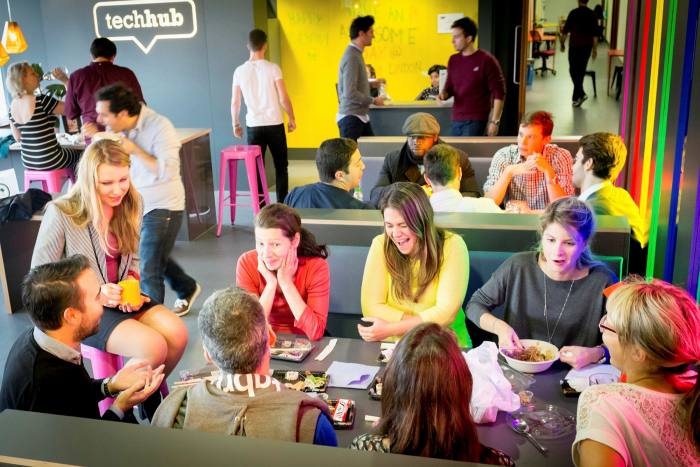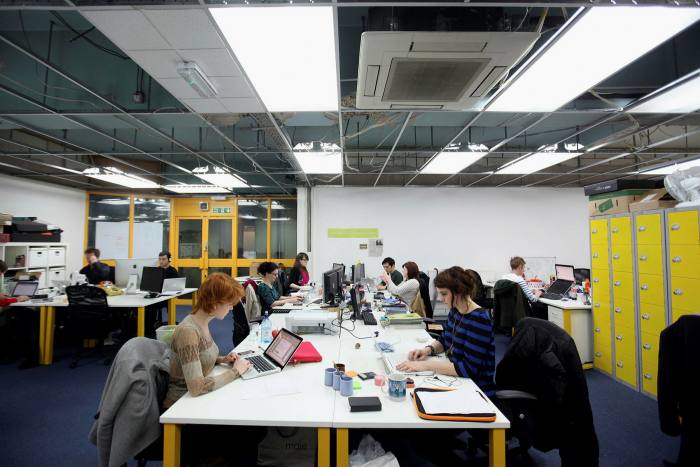TechHub, which for a decade was home to hundreds of start-ups at the heart of London’s “Silicon Roundabout” tech scene, has filed for administration.
Founded in 2010 by Elizabeth Varley and Mike Butcher, it quickly became a focal point for the tech community. Six months after TechHub’s launch, David Cameron’s government sought to rebrand the cluster of companies around its base in east London as a grand “Tech City”.
Ms Varley blamed Covid-19 for TechHub’s collapse, saying that it had lost three-quarters of its revenues as the lockdown prevented members from using the space.
While TechHub did not play host to some of London’s biggest start-ups such as DeepMind, Monzo or Deliveroo, its tenants together raised more than $1bn in funding, Ms Varley estimated, with several members selling their businesses for hundreds of millions of dollars each, including Divide to Google and Nexmo to Vonage. “We wanted to be accessible to everybody who was interested in the tech industry,” Ms Varley said.
However, the influx of entrepreneurs also attracted property developers to Shoreditch, who drove up the cheap rents that had made the neighbourhood attractive to cash-strapped start-ups in the first place.
“Most rents around the area now are literally 10 times what we were paying in our first space,” Ms Varley said. “We have gotten some of the best deals in the area over time. But it’s still doubled the rent each time we’ve moved to a new space.”
Today’s commercial rents could reach £70 per square foot, she added. “If we hadn’t been there, a lot of people would have been priced out the area way earlier.”
At several points during the past decade, TechHub struggled to keep up with demand and ran a waiting list, Ms Varley said. But Covid-19 changed that in a matter of weeks: members no longer wanted to pay for desk space as staff worked from home during lockdowns. And TechHub’s biggest landlord was unwilling or unable to offer it any discount on rent, she said. “Our major landlord is not prepared to negotiate.”
Public documents show that Intercontinental Exchange, the parent company of the New York Stock Exchange, subleases part of its offices on Epworth Street to TechHub. ICE declined to comment.
Despite the wealth created around it, TechHub itself never became a big business. It opened outposts in Madrid and Warsaw in partnership with Google but closed them in 2017. The remaining TechHub spin-offs in Riga, Bucharest and Swansea will not be affected by the London office going into administration as they are owned independently.
Google was one of TechHub’s biggest sponsors and partners, alongside the likes of BT, Deloitte and London & Partners, a promotion agency partly funded by the Mayor of London. Ms Varley and her team also helped to run events at Google’s own east London start-up hub, Campus, which was set up in 2012.
“They played a huge role in the content, the programming and the community in the ecosystem,” said David Grunwald, who helped run Campus as head of Google’s start-up partnerships programme for several years. “Before that term [community] became [an] investor selling-point for co-working spaces, TechHub were there building those roots . . . I’ve always seen them as a foundational part of the scene in Old Street.”
Caroline Hughes, chief executive of Lifetise, an online financial planning tool, said she remembered the early days of TechHub as “a little more scrappy but it felt very exciting”.
She added: “I don’t think London would be a capital of tech innovation if it wasn’t for TechHub paving the way.”
Additional reporting by Philip Stafford in London
This article has been amended since initial publication to correct that TechHub opened an office in Bucharest



